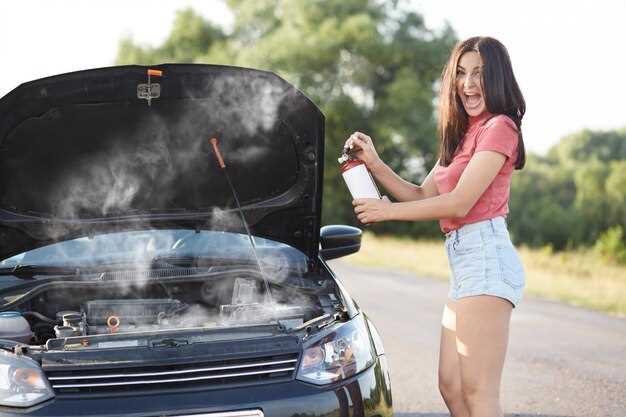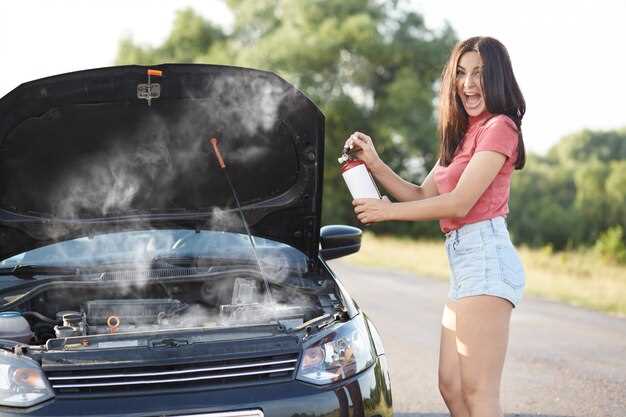
Why your car smells like gas
- Dominique Kaye
- 0
- Posted on

Experiencing a strong gasoline odor inside or around your vehicle can be concerning for any driver. This smell often indicates a leak somewhere in the fuel system, which not only poses safety risks but can also lead to costly repairs if not addressed promptly. Understanding the common reasons for this issue is crucial in maintaining both your car’s performance and your personal safety.
There are several potential causes for the gas smell, ranging from minor issues, such as a loose gas cap, to more serious problems like fuel line leaks. Each of these scenarios requires attention and action to prevent further complications. Ignoring a gasoline odor can lead to dangerous situations, including fire hazards and engine damage, underscoring the importance of addressing the smell immediately.
In this article, we will explore the most common reasons your car might smell like gasoline and provide you with guidelines on how to diagnose and mitigate these issues effectively. Being proactive can save you both time and money while ensuring your vehicle remains safe and reliable on the road.
Identifying Fuel Leak Sources Under the Hood

When you detect a gas smell coming from your car, it is crucial to identify potential fuel leak sources under the hood. Fuel leaks can pose significant safety hazards, leading to fire risks and engine problems. Start by inspecting the fuel lines, which are typically made of rubber or metal. Look for any signs of cracks, fraying, or loose connections that may indicate a leak.
Next, examine the fuel injectors as they can also be a source of leaks. If you notice fuel pooling around the injectors or a strong gasoline odor, this could suggest a malfunction. Similarly, check the fuel pressure regulator for signs of wear or failure, as a damaged regulator can lead to excess fuel backing up into the engine, causing leakage.
Don’t forget to look at the fuel tank itself. Corrosion or damage to the fuel tank can result in leaks that are not always visually apparent. If you suspect a tank issue, a thorough inspection for any surface rust or contamination is essential.
Lastly, keeping the engine bay clean can help you identify leaks more effectively. Dirt and grime can obscure the source of a leak, making it harder to diagnose problems promptly. Regularly checking for any signs of wetness or strong fuel odors underneath the hood can significantly enhance your safety and the integrity of your vehicle.
Signs of Fuel System Malfunctions You Shouldn’t Ignore
Detecting issues within your fuel system is crucial for both vehicle performance and safety. One of the most significant signs of a malfunction is the presence of a fuel leak. If you notice a strong gasoline odor near your car or find gasoline puddles under your vehicle, it’s essential to address this immediately. Fuel leaks pose a severe fire hazard and can lead to more extensive damage if left unresolved.
Another warning sign is reduced engine performance or poor acceleration. If your vehicle struggles to start or feels sluggish when you accelerate, it might indicate problems within the fuel system, such as a clogged fuel filter or failing fuel pump. Ignoring these symptoms could lead to complete engine failure.
Additionally, observe changes in fuel consumption. A sudden increase in fuel usage can suggest that your car is experiencing issues that require attention. This can be linked to various factors, including leaks, improper fuel mixture, or malfunctioning injectors.
Finally, check for warning lights on your dashboard, particularly the check engine light. This indicator can signify multiple issues, including those related to the fuel system. If it illuminates, it’s advisable to have a professional diagnose the cause to ensure your vehicle’s safety and performance.
Steps to Take for Safety When You Detect Gas Odor

When you notice a gas odor in your car, prioritizing safety is essential. The presence of fuel fumes can indicate a potentially hazardous situation, so immediate action is required.
First, if you are driving, safely pull over to the side of the road. Choose a location away from traffic to prevent any accidents. Once you’ve stopped, turn off the engine and refrain from using any electrical devices, as sparks could ignite the gas.
Next, carefully exit the vehicle and avoid inhaling the fumes. It’s crucial to keep a safe distance from the car and stay in a well-ventilated area. If you are in an enclosed space, such as a garage, exit immediately to ensure fresh air circulation.
After you have moved to safety, you should assess the situation from a distance. Look for any visible signs of fuel leakage, such as puddles or a strong fuel smell. Be cautious not to touch or inspect the area closely without professional help.
Contact a qualified mechanic or roadside assistance to report the gas odor. Explain your situation clearly, and refrain from attempting to resolve the issue yourself, as this could lead to dangerous consequences.
If you feel that the situation poses an immediate risk, evacuate the area and contact emergency services. Safety should always be your top priority when dealing with potential fuel leaks or odors.
Finally, ensure that your vehicle is inspected regularly to identify any underlying issues that may lead to fuel-related odors. Preventative maintenance can help avert dangerous situations in the future.
